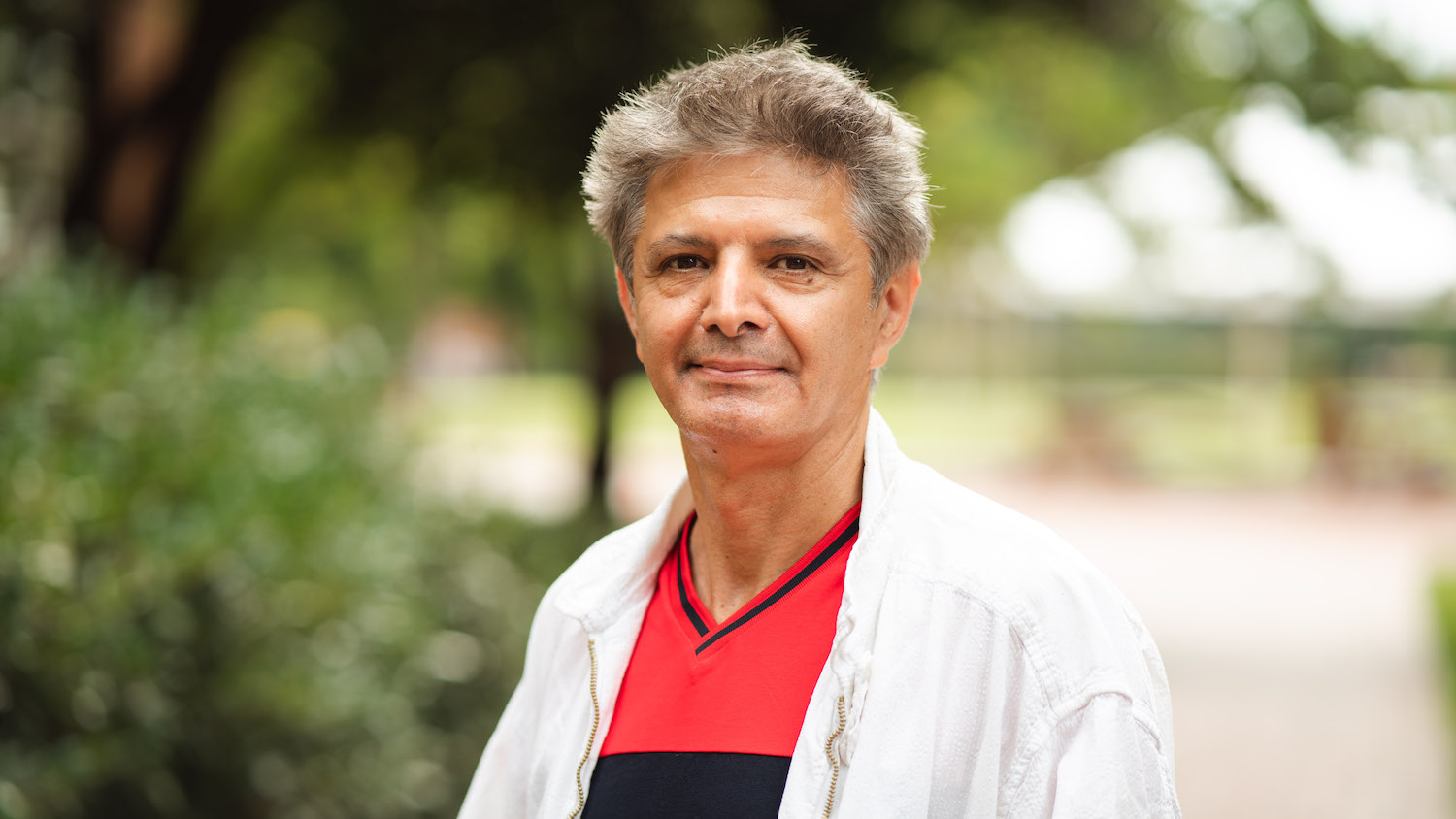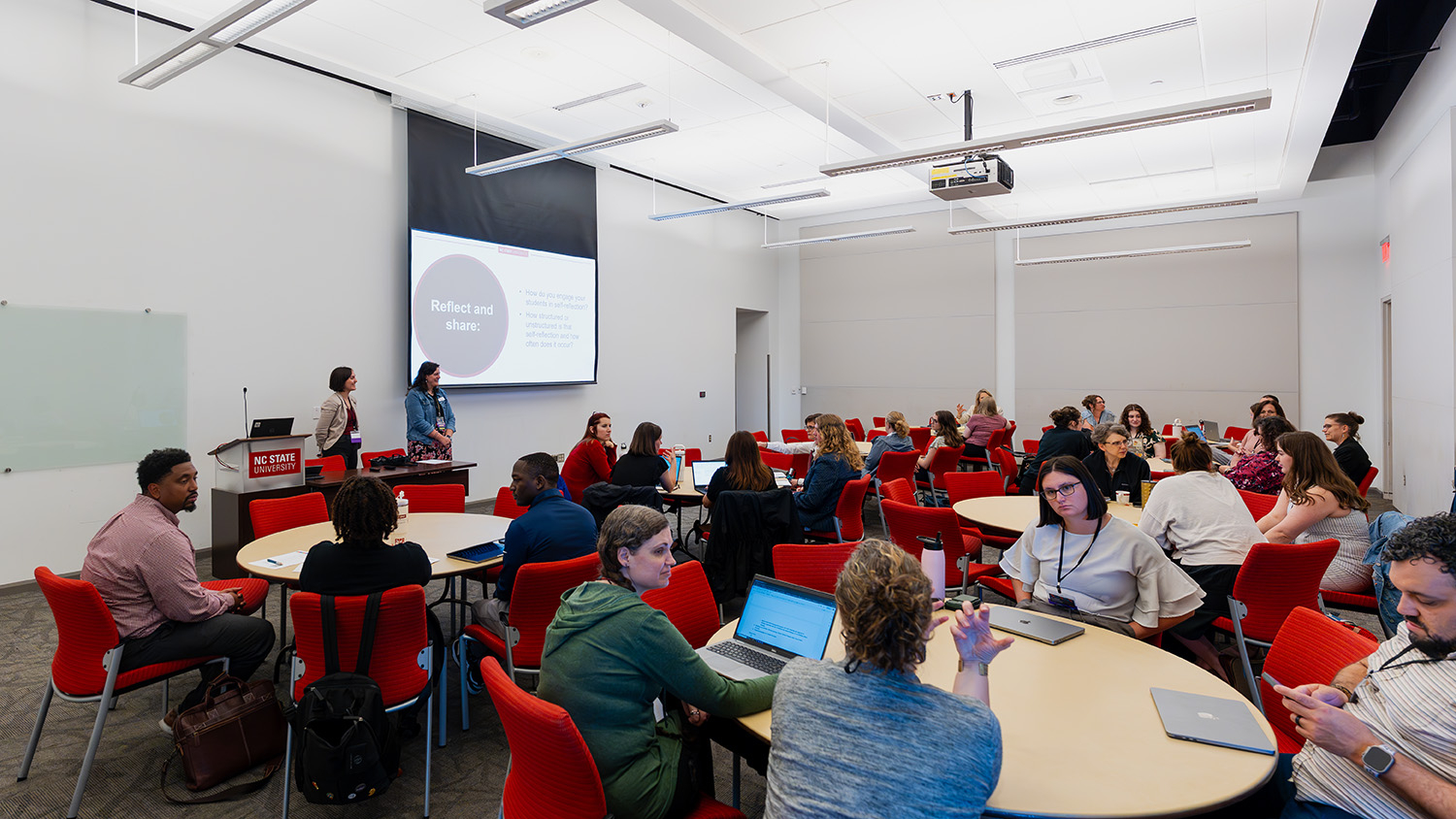Intellectual curiosity and a hunger for impact inspired Reza Estilaei to build a successful career in investment management. Now, in his new role as professor of practice at NC State, he will equip a new generation of investors to think beyond the bottom line.
Q&A with Reza Estilaei
What inspired your initial foray into investing?
My career in finance was completely accidental. As a PhD student in physics at the University of British Columbia, I made an investment in a stock in an effort to support myself more comfortably. That investment led to financial loss and planted a seed of intellectual curiosity in my mind about how markets worked.
When I later joined the University of California-San Francisco as a professor to lead research on neurodegenerative diseases, I began attending seminars at the Haas School Business at UC Berkeley to learn more about how the markets work. My interest in business topics, combined with my strong quantitative background, helped me come up with interesting questions that caught the attention of several professors in the audience. One thing led to another, and I went on to complete graduate studies in finance at Haas. After finishing my degree, I went into the corporate world.
What drives you to achieve success in this field?
My personal mission is to have a meaningful impact on individuals and their communities. That’s where I’m in my element. What makes me tick is critical thinking, intellectual curiosity, and impact. When I led a research and portfolio management team at Blackrock, our research team developed and managed the first active global macro hedge fund ETF. In contrast to a hedge fund, which can only be accessed by financial intermediaries, institutional investors, or the very wealthy, this fund is open to everybody. It was rewarding to build a highly sophisticated investment vehicle that the average person could access.
“My personal mission is to have a meaningful impact on individuals and their communities. That’s where I’m in my element.”
What drew you to teaching?
I have always had a passion for helping the next generation of investors achieve their aspirations. This starts with helping them understand the reality of investing. It’s not science or theory. There is no black and white. If you do a physics experiment, you will get the same results over and over. Investing is a completely different story because of the impact of human psychology. Most decisions on the planet are based on where the money goes, and where the money goes is grounded partly in human psychology. If I can help my students understand this, they will be better equipped to tackle the investment challenges and societal problems facing their generation.
To bring some of these concepts to life in my corporate financial management class, I introduced a segment called Market Wrap, where I share a piece of news and describe how the markets have responded to it. Students are then tasked with taking that information and deciding how they would react if they were in charge of preserving a given amount of capital.
You are designing a new course called Securities Selection and Portfolio Management. What can students expect?
They can expect to learn cutting-edge industry approaches and techniques for investing, supplementing their academic training. This exposure helps student appreciate the limitation of theoretical models and how practitioners work around those constraints in real life. In many cases, one part of an equation will work while another will not. There is always value in digging deeper. As a senior researcher for investment firms, I spent a lot of time sorting through ideas and studying the ones that had been discarded, because that is how you build critical thinking skills and learn from mistakes.
What are industry practitioners looking for in new hires?
We are increasingly looking for people with some sort of mission or vision beyond personal gain. This emphasis is reflected in the rapid growth of ESG, which takes social and environmental values into account when deciding where money should go. We are also looking for people who are personable, with solid communication and relationship-building skills. And, while there is a learning curve when it comes to mastering analytical tools, we look for people with top-tier analytical skills. Business schools should put more emphasis on developing students’ quantitative skills to meet market demand.
How do you spend your time outside of the classroom?
My 14-year-old twins, a boy and a girl, are the loves of my life. I pour a lot of time and energy into helping them with their academics and supporting them in sailing, track and field, and other extracurricular activities. I spend the rest of my time on my hobbies: drawing, photography, and biking.
- Categories:



